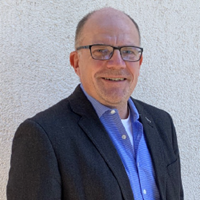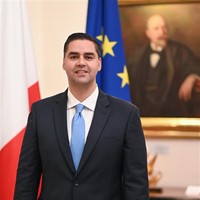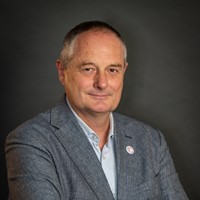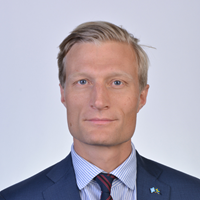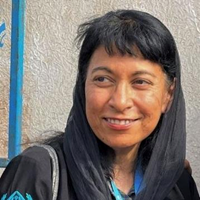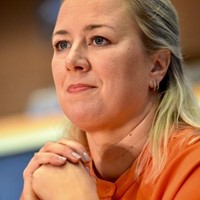




Jutta Urpilainen
Commissioner for International Partnerships
Biography
As European Commissioner for International Partnerships, Ms Jutta Urpilainen oversees the European Commission’s work on international cooperation and sustainable development.
Before joining the Commission, Ms Urpilainen served as a Member of the Finnish Parliament from 2003 to 2019. In 2008, she became the first woman leader of the Social Democratic Party of Finland. From 2011 to 2014, she served as Finland’s Deputy Prime Minister and Finance Minister. During that time, she became closely involved in development issues, joining the Development Committee of the World Bank Group and IMF and chairing the Finnish National Commission on Sustainable Development. She served as the Foreign Minister’s Special Representative on Mediation (2017-19) and chaired the Finnish National Commission for UNESCO (2015-18).
Commissioner Urpilainen was born in 1975. She is married and has two children.
Organisation
European Commission
EU institutions
Speaker session
Localisation: The guidance on the promotion of equal partnerships with local responders
Studio
The Commission has set out its approach on strengthening equal partnerships with local responders around five pillars: 1) recognising skills and supporting capacities, 2) equitable partnerships, 3) participation throughout the humanitarian response cycle, 4) strengthening the leadership role of local and national humanitarian actors, 5) facilitating access to localised financing models. This session will discuss what good practices have been adopted by organisations and governments on these subjects and how can they be replicated. The session will also evaluate what actions are most relevant/effective for implementing durable solutions for localisation. Finally, the session will discuss how to move forward to support localisation at a global level, for example through alliances with other donors.
Putting IHL at the heart of external action: Ensuring accountability
Aquarium
Building on the first European Humanitarian Forum, as well as on the UNGA high-level event on accountability for sexual violence and other violations of International Humanitarian Law (IHL), this session continues the discussion on the means to improve monitoring of violations against IHL.
The session will discuss how the EU ensures that IHL is at the heart of its external action, and how EU Member States best can promote IHL. In addition, the session will evaluate how the ICC as well as preventive measures supported under ECHO’s Programmatic Partnership with the ICRC can promote IHL compliance in the current global context.
Stepping up the Commitment to Conflict-Affected Children: Working across the Humanitarian-Development-Peace Nexus
Aquarium
This panel will focus on children at risk of, associated with, and formerly associated with armed forces and armed groups and. In particular, the panel will discuss how to best prevent these children’s recruitment and use, and support their reintegration through a Humanitarian-Development-Peace Nexus perspective. The discussion will highlight ways in which children are negatively impacted by their recruitment and use by armed actors and their differentiated needs based on age, gender and disability status. It will furthermore give concrete recommendations for updating the EU Guidelines on CAAC as well as their Implementation Strategy.
The challenges of humanitarian negotiations and principled response. How far are you ready to go to save lives? The case of Yemen
Studio
This session aims to explore how we can reinforce unity in the humanitarian community when negotiating and maintaining a principled approach in challenging operating environments such as Yemen. The session will discuss questions like :
- How far are humanitarians ready to go to have access and save lives? What is the reality of red lines in practice?
- Why is it difficult for humanitarians to maintain a united position in humanitarian negotiations? What have we done well so far in maintaining a united position?
- What should we improve in the future?
Through these questions the session strives to learn from the Yemen experience and research, reinforce good practices such as the SOM process, and generate concrete recommendations to improve the coordination of humanitarian negotiations.
Strengthening synergies between humanitarian and development actors in protracted and complex crises
Auditorium
This high-level session will explore new modalities for engagement by development actors in protracted and complex humanitarian crises, including where traditional modes of engagement with national authorities are not feasible. Donors, development and humanitarian organizations and policy experts will discuss what new mechanisms may be needed to sustain basic services over time in complex crises; what principled and effective engagement with local authorities and communities could look like in politically estranged contexts; and how development, humanitarian and political approaches can be combined to tackle to root drivers of protracted crisis while addressing people’s immediate needs.

Ali Al-Jaberi
Moderator
Biography
Ali Al-Jaberi is a professional moderator and studio-presenter, with a background in journalism. He is a former Europe Correspondent for Associated Press Television News and a War Correspondent for Trouw and De Standaard newspapers and national radio. Ali was lecturer of Public Policy at The Hague University, specializing in International Relations and Conflict and European Policy among other themes. He is a multiple award-winning public speaker and is fluent in English, Dutch and Arabic. His moderation style is characterized by energetic presentation and a thorough understanding of the substance.
Speaker session
Localisation: The guidance on the promotion of equal partnerships with local responders
Studio
The Commission has set out its approach on strengthening equal partnerships with local responders around five pillars: 1) recognising skills and supporting capacities, 2) equitable partnerships, 3) participation throughout the humanitarian response cycle, 4) strengthening the leadership role of local and national humanitarian actors, 5) facilitating access to localised financing models. This session will discuss what good practices have been adopted by organisations and governments on these subjects and how can they be replicated. The session will also evaluate what actions are most relevant/effective for implementing durable solutions for localisation. Finally, the session will discuss how to move forward to support localisation at a global level, for example through alliances with other donors.
Putting IHL at the heart of external action: Ensuring accountability
Aquarium
Building on the first European Humanitarian Forum, as well as on the UNGA high-level event on accountability for sexual violence and other violations of International Humanitarian Law (IHL), this session continues the discussion on the means to improve monitoring of violations against IHL.
The session will discuss how the EU ensures that IHL is at the heart of its external action, and how EU Member States best can promote IHL. In addition, the session will evaluate how the ICC as well as preventive measures supported under ECHO’s Programmatic Partnership with the ICRC can promote IHL compliance in the current global context.
Stepping up the Commitment to Conflict-Affected Children: Working across the Humanitarian-Development-Peace Nexus
Aquarium
This panel will focus on children at risk of, associated with, and formerly associated with armed forces and armed groups and. In particular, the panel will discuss how to best prevent these children’s recruitment and use, and support their reintegration through a Humanitarian-Development-Peace Nexus perspective. The discussion will highlight ways in which children are negatively impacted by their recruitment and use by armed actors and their differentiated needs based on age, gender and disability status. It will furthermore give concrete recommendations for updating the EU Guidelines on CAAC as well as their Implementation Strategy.
The challenges of humanitarian negotiations and principled response. How far are you ready to go to save lives? The case of Yemen
Studio
This session aims to explore how we can reinforce unity in the humanitarian community when negotiating and maintaining a principled approach in challenging operating environments such as Yemen. The session will discuss questions like :
- How far are humanitarians ready to go to have access and save lives? What is the reality of red lines in practice?
- Why is it difficult for humanitarians to maintain a united position in humanitarian negotiations? What have we done well so far in maintaining a united position?
- What should we improve in the future?
Through these questions the session strives to learn from the Yemen experience and research, reinforce good practices such as the SOM process, and generate concrete recommendations to improve the coordination of humanitarian negotiations.
Strengthening synergies between humanitarian and development actors in protracted and complex crises
Auditorium
This high-level session will explore new modalities for engagement by development actors in protracted and complex humanitarian crises, including where traditional modes of engagement with national authorities are not feasible. Donors, development and humanitarian organizations and policy experts will discuss what new mechanisms may be needed to sustain basic services over time in complex crises; what principled and effective engagement with local authorities and communities could look like in politically estranged contexts; and how development, humanitarian and political approaches can be combined to tackle to root drivers of protracted crisis while addressing people’s immediate needs.

Marie-Pierre Caley
ACTED CEO
Biography
Organisation
ACTED
NGO
Speaker session
Localisation: The guidance on the promotion of equal partnerships with local responders
Studio
The Commission has set out its approach on strengthening equal partnerships with local responders around five pillars: 1) recognising skills and supporting capacities, 2) equitable partnerships, 3) participation throughout the humanitarian response cycle, 4) strengthening the leadership role of local and national humanitarian actors, 5) facilitating access to localised financing models. This session will discuss what good practices have been adopted by organisations and governments on these subjects and how can they be replicated. The session will also evaluate what actions are most relevant/effective for implementing durable solutions for localisation. Finally, the session will discuss how to move forward to support localisation at a global level, for example through alliances with other donors.
Putting IHL at the heart of external action: Ensuring accountability
Aquarium
Building on the first European Humanitarian Forum, as well as on the UNGA high-level event on accountability for sexual violence and other violations of International Humanitarian Law (IHL), this session continues the discussion on the means to improve monitoring of violations against IHL.
The session will discuss how the EU ensures that IHL is at the heart of its external action, and how EU Member States best can promote IHL. In addition, the session will evaluate how the ICC as well as preventive measures supported under ECHO’s Programmatic Partnership with the ICRC can promote IHL compliance in the current global context.
Stepping up the Commitment to Conflict-Affected Children: Working across the Humanitarian-Development-Peace Nexus
Aquarium
This panel will focus on children at risk of, associated with, and formerly associated with armed forces and armed groups and. In particular, the panel will discuss how to best prevent these children’s recruitment and use, and support their reintegration through a Humanitarian-Development-Peace Nexus perspective. The discussion will highlight ways in which children are negatively impacted by their recruitment and use by armed actors and their differentiated needs based on age, gender and disability status. It will furthermore give concrete recommendations for updating the EU Guidelines on CAAC as well as their Implementation Strategy.
The challenges of humanitarian negotiations and principled response. How far are you ready to go to save lives? The case of Yemen
Studio
This session aims to explore how we can reinforce unity in the humanitarian community when negotiating and maintaining a principled approach in challenging operating environments such as Yemen. The session will discuss questions like :
- How far are humanitarians ready to go to have access and save lives? What is the reality of red lines in practice?
- Why is it difficult for humanitarians to maintain a united position in humanitarian negotiations? What have we done well so far in maintaining a united position?
- What should we improve in the future?
Through these questions the session strives to learn from the Yemen experience and research, reinforce good practices such as the SOM process, and generate concrete recommendations to improve the coordination of humanitarian negotiations.
Strengthening synergies between humanitarian and development actors in protracted and complex crises
Auditorium
This high-level session will explore new modalities for engagement by development actors in protracted and complex humanitarian crises, including where traditional modes of engagement with national authorities are not feasible. Donors, development and humanitarian organizations and policy experts will discuss what new mechanisms may be needed to sustain basic services over time in complex crises; what principled and effective engagement with local authorities and communities could look like in politically estranged contexts; and how development, humanitarian and political approaches can be combined to tackle to root drivers of protracted crisis while addressing people’s immediate needs.








